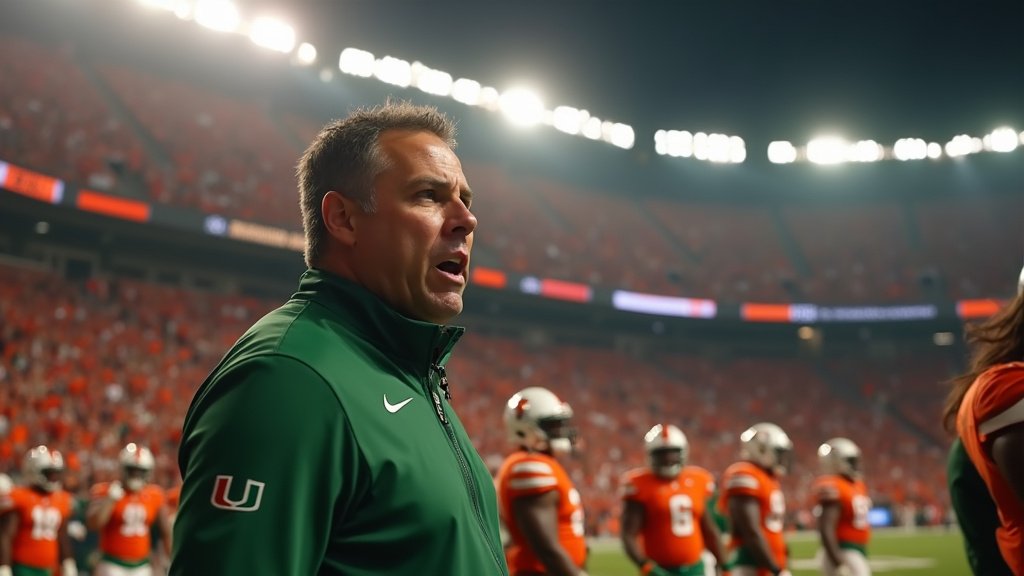MIAMI, USA – As the weight of rising living costs and simmering economic uncertainty settles across the United States, residents in metropolitan areas are increasingly scrutinizing household budgets. In Miami, Florida, a city known for its vibrant lifestyle and dynamic economy, this fiscal caution is manifesting in tangible ways, leading some households to reduce spending on services once considered convenient staples.
Observations highlighted by the Miami Herald Editorial Board point to a growing trend among Miamians adopting strategies described as “recession-proofing.” This involves making difficult choices about discretionary spending, signaling a shift in consumer behavior as households brace for potentially challenging economic conditions.
The Pain Points Driving Austerity
The impulse to rein in spending is not arbitrary but a direct response to concrete economic pressures. The cost of everyday necessities has seen significant inflation in recent years. According to data from the U.S. Department of Agriculture (USDA), food costs in the United States have increased by more than 23% between 2020 and 2024. This substantial rise in non-discretionary spending leaves less room in household budgets for other expenses.
Compounding this pressure is the city’s housing market. Miami residents face unique challenges, being identified as the most rent-burdened population in the United States. This designation comes from a Census Bureau survey released in February, underscoring the extraordinary proportion of income Miamians must allocate simply to keep a roof over their heads. When a significant chunk of income is absorbed by essential costs like food and housing, consumers are forced to look elsewhere to find savings.
Cutting the Cord and Parking the Ride
Among the first casualties of this budget tightening appear to be services perceived as non-essential luxuries rather than core necessities. The Miami Herald Editorial Board’s reporting indicates that some residents are breaking up with popular subscription services and convenient on-demand options. Specifically, spending on platforms like Netflix and ride-sharing services such as Uber is being reduced or eliminated by some households.
Netflix, the ubiquitous streaming giant, represents a form of entertainment readily available but not strictly necessary for survival. In times of economic strain, cutting subscription services is often a primary target for savings. Similarly, Uber and other ride-sharing services, while offering convenience, can be significantly more expensive than public transport or using a personal vehicle, positioning them as discretionary expenses that can be curtailed when finances are tight.
This pattern of cutting services like Netflix and Uber illustrates a fundamental recalibration of priorities. Households are making calculated decisions, distinguishing between essential expenditures and those that can be forgone to build a buffer against uncertainty or simply to make ends meet amidst rising baseline costs.
Broader Economic Headwinds
The consumer belt-tightening in Miami is occurring against a backdrop of wider economic uncertainty. While the national economic picture remains complex, concerns about potential headwinds persist. One factor frequently cited in economic discussions is the potential impact of trade policy, including tariffs. There is concern among some economists and analysts that policies such as those implemented or proposed by President Trump could lead to an economic slowdown. Tariffs, which are taxes on imported goods, can increase costs for businesses and consumers, disrupt supply chains, and potentially dampen economic activity.
The possibility of an economic slowdown adds another layer of apprehension for households already grappling with inflated prices for necessities. The proactive “recession-proofing” seen in Miami suggests that some residents are not waiting for official declarations of economic downturn but are preemptively adjusting their financial behavior based on current conditions and perceived future risks.
Impact on the Local Economy
The collective decisions of individual households to reduce spending on non-essential services can have a ripple effect on the local economy. Businesses that rely on discretionary consumer spending – from entertainment providers to transportation services and retail – may see a decrease in demand. While cutting Netflix and Uber might seem like small individual actions, a widespread adoption of such measures across a city can impact local revenues and employment in those sectors.
Miami’s economy is diverse, with significant contributions from tourism, real estate, finance, and trade. However, consumer spending remains a vital component. A slowdown in discretionary spending could temper growth, particularly for businesses catering to local residents rather than international visitors.
The Psychology of Uncertainty
The phenomenon of “recession-proofing” also has a significant psychological dimension. Economic uncertainty can erode consumer confidence, leading people to become more risk-averse with their money. Even if an official recession does not materialize, the fear of one, coupled with the undeniable reality of increased costs for essentials, can trigger defensive financial behaviors like saving more and spending less on non-necessities.
This cautious mindset can become a self-fulfilling prophecy to some extent; if enough people reduce spending, it can indeed slow down economic activity. However, for individual households, these actions are often viewed as necessary steps to maintain financial stability and security in unpredictable times.
Looking Ahead
The situation in Miami serves as a potent microcosm of the economic challenges facing many parts of the United States. The combination of sticky inflation for core goods, burdensome housing costs, and a general climate of economic uncertainty is forcing households to make difficult budgetary decisions.
Whether this trend intensifies or abates will likely depend on several factors, including future inflation rates, developments in the housing market, and the broader performance of the national and global economy, including the realization or avoidance of a potential economic slowdown linked to factors such as trade policies. For now, in Miami, the focus for many appears to be on securing the essentials and building resilience by scaling back on the non-essentials, a clear indicator of the economic pressures being felt on the ground.





